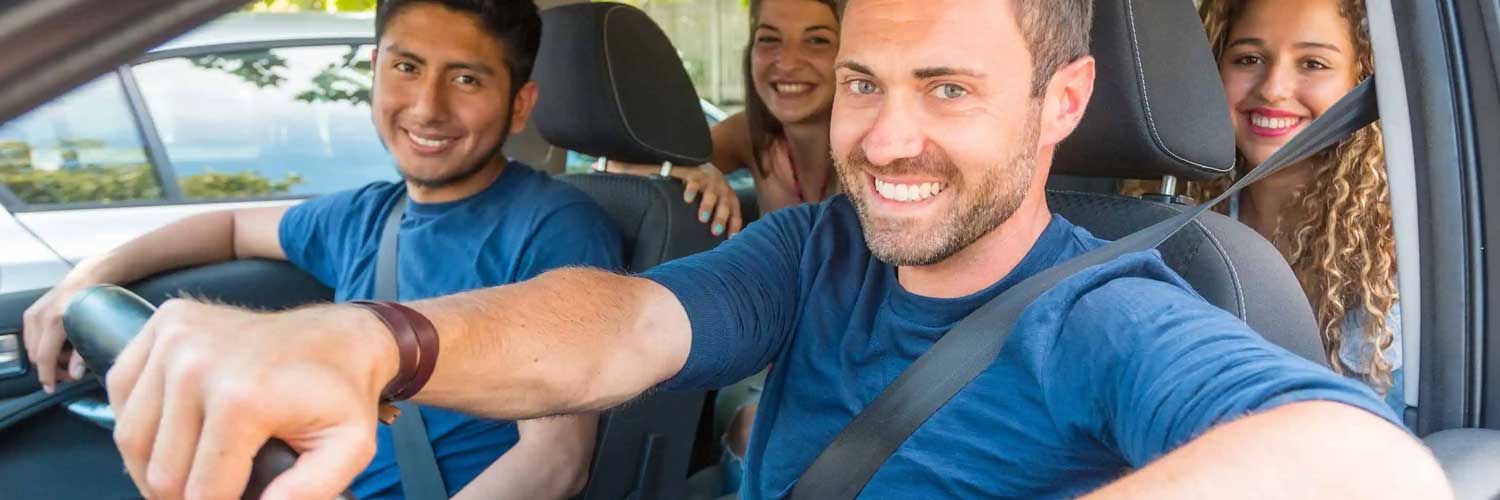Rideshare insurance is a type of commercial coverage designed to protect drivers who use their personal vehicles for ridesharing services like Uber, Lyft, or other transportation network companies (TNCs). While personal auto insurance provides coverage for normal day-to-day driving, it often excludes coverage when a vehicle is being used for commercial purposes, such as ridesharing. Rideshare insurance bridges this gap, ensuring drivers have the protection they need when they are on the job.
If you drive for a ridesharing company in Texas, your personal auto insurance likely does not cover you when you’re using your vehicle for business purposes. Rideshare insurance is important because it fills the coverage gaps that exist between your personal insurance and the coverage provided by the ridesharing company’s insurance.
Ridesharing services generally provide limited coverage for drivers. Here’s how the coverage typically works
The ridesharing company usually provides full liability coverage when a passenger is in your vehicle, but rideshare insurance may help cover gaps related to physical damage to your vehicle or medical payments if you’re injured.
Without rideshare insurance in Texas, drivers face potential exposure to significant out-of-pocket expenses in the event of an accident. Whether you’re waiting for a fare or driving with a passenger, having this additional coverage ensures that you’re adequately protected.
Evie has been my insurance agent for many years now. She is perhaps the most knowledgeable person in insurance I have ever dealt with and always gives you the information and available choices like you were family. Her service is exceptional and her advice has always been invaluable for me and my family. I can say without a doubt that I would highly recommend her for anyone’s insurance needs
Mark H. – Allen, Texas
Rideshare insurance in Texas covers the gaps between your personal auto insurance and the ridesharing company’s policy, providing critical protection when your vehicle is used for commercial purposes. Some key areas of coverage include
Rideshare insurance does not cover accidents that occur while a driver is offline. When a driver is logged out of the ridesharing app and not actively waiting for ride requests, they are considered to be using their vehicle for personal use. In this case, personal auto insurance applies. If an accident occurs while the driver is offline, any claims would need to be filed under their personal auto insurance policy, as rideshare insurance only provides coverage during specific periods when the driver is logged into the app and engaged in rideshare activities.
The primary difference between rideshare insurance and personal auto insurance is that rideshare insurance is specifically designed to cover drivers using their vehicles for commercial purposes, while personal auto insurance only covers private, non-commercial use. In most cases, personal auto insurance excludes coverage for accidents that occur when a vehicle is being used for ridesharing.
In Texas, many personal auto policies will not cover damages if you’re involved in an accident while logged into a ridesharing app or transporting passengers. This leaves drivers exposed to financial risks, including liability for property damage, medical expenses, and vehicle repairs.

In Texas, several factors can influence the cost of rideshare insurance premiums
Reach out to the independent agents at Wise Insurance for a fast quote on rideshare insurance in Texas. Our knowledgeable team will help you navigate the complexities of rideshare coverage, ensuring that you’re fully protected while driving for companies like Uber or Lyft. With personalized service and a deep understanding of Texas insurance regulations, we can craft a policy tailored to your needs, so you may drive with peace of mind.
Subscribe to my newsletter by filling the form below.
A confirmation email will be sent to your mailbox: please read the instructions to complete the subscription.